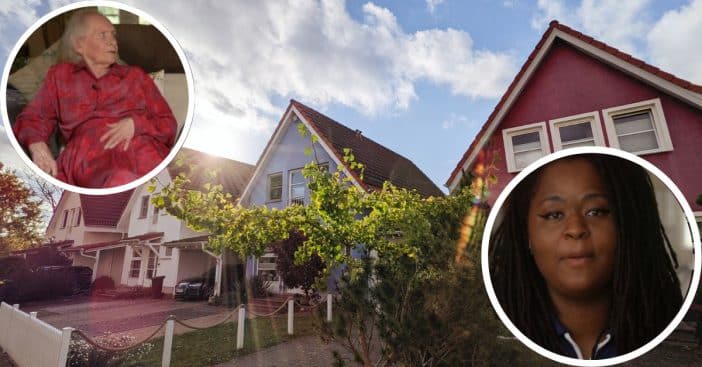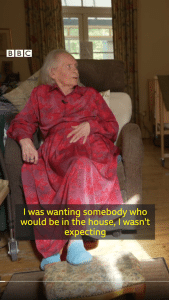
Tiny homes, roommates, mobile housing – people all over the world are taking a creative and innovative approach to claiming a living space. Over in London, Christine Rahman is pursuing an option called homeshare, partnering her, at 28, with 83-year-old Margaret Smith – to both their benefits.
After leaving her job, millennial Rahman found herself short of funds. That’s when she looked into homeshare. At first, it sounds like the very familiar idea of finding a roommate and in essence that’s exactly what it is. But it distinctly involves an age difference that has both parties filling in a specific niche for the other; one person gets affordable lodging and the other, usually disabled, has helpful companionship.
People of starkly different walks of life can help each other with a homeshare setup
Massive thanks again to BBC London for having our founder, Caroline, on the evening news last week to talk about how people can join a ‘#homeshare arrangement.
In case you missed it, watch the shorter version featuring homesharers Christine & Margaret!https://t.co/oLOnhmO8A7
— Share & Care (@ShareandCareOrg) May 22, 2023
Rahman had just found herself dipping into her savings when she encountered an ad posted by Share and Care Homeshare. She signed up, which allowed the service to match her with Smith, a senior citizen who is legally blind and suffers from Parkinson’s disease. Smith is named as the householder.
RELATED: 8 Things Millennials Want Boomers To Stop Telling Them About Money
“My daughter heard of homeshare, and she thought it would be useful to have someone else in the house,” shared Smith. “I was intrigued by the idea of having someone to come and live with me because being in the house on your own is quite difficult.”
Both parties benefit, including Rahman and Smith

The situation goes like this: a renter, known also as a sharer, pays roughly $6 a day and agrees to spend some 15 hours a week helping the householder with preparing fresh meals, cleaning the home, tending the garden, or even providing a social outlet.
True to the system, Rahman helps Smith around the house, usually cooking for them both and finding misplaced items for Smith. But that isn’t her full responsibility; other carers take up the brunt of the work. Instead, the two ended up becoming family.

“Margaret and her family have made me feel like part of their family,” said Rahman. “She has invited my Mom over for dinner, and we organized a ‘French evening’ where we only speak French. My little sister can visit me as often as she wants. Margaret’s daughter even had a spare ticket for the theatre once and took my sister.”
Rahman has gotten to know Smith and her family – of the biological sort – very well. “She was very articulate and friendly,” she praised, adding that Smith’s daughter reminded Rahman of her own mother. Smith and Rahman clicked quickly, as Smith used to be a psychologist in the prison service and she spoke fluent French. Rahman’s own educational interests lie in psychology and she comes from a French-speaking background. Needless to say, she’s able to practice her handle on the language quite often. Smith gets companionship and an extra set of helping hands.
In the end, the homeshare system united two fast friends who may never have crossed paths otherwise.

